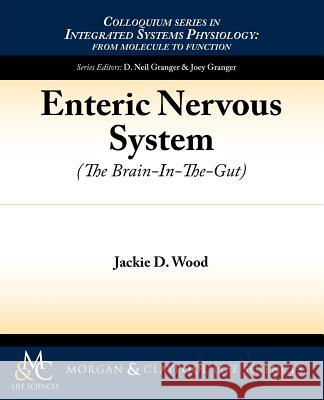Enteric Nervous System: The Brain-In-The-Gut » książka
Enteric Nervous System: The Brain-In-The-Gut
ISBN-13: 9781615043392 / Angielski / Miękka / 2011 / 172 str.
Investigation of the normal and disordered enteric nervous system and its interactions with the central nervous system is a branch of neurogastroenterology. Neurogastroenterology is a scientific and clinical subspecialty of gastroenterology that deals with the neural mechanisms that influence function of the digestive tract and that underlie projection of conscious sensations to the gut.
Minute-to-minute behavior of the alimentary tract reflects the integrated functioning of the guts musculature, secretory glands and blood-lymphatic vasculature. Activity of the three effector systems to generate functionally effective patterns of behavior, which are adaptive for differing digestive states, is organized and coordinated by the enteric nervous system (i.e., the brain-in-the-gut). The heuristic model for the enteric nervous system (ENS) is the same as for all integrative nervous systems, whether in vertebrate or invertebrate animals. Like other integrative nervous systems, such as the spinal cord and brain stem, the ENS functions with sensory neurons, interneurons and motor neurons. That the gut does not work without the ENS can be made as an absolute statement. This is apparent in its absence in terminal regions of the large intestine in Hirschsprungs disease in humans and animals where it is reflected by dysfunctional motility, failure of defecation and proximal fecal compaction within a proximal megacolon. Autoimmune ablation of the ENS in the lower esophageal sphincter underlies the pathophysiology of achalasia. Furthermore, neuropathic degeneration of ENS neurons in irritable bowel syndrome, other functional gastrointestinal disorders, intestinal pseudoobstruction, Chagas disease, paraneoplastic syndrome and enteric ganglionitis, underlies the morbidity associated with these disorders. The impact of these clinical disorders on quality of life and cost of health care is a reminder of the importance of the ENS for a normally functioning gut. Moreover, our incomplete understanding of the pathobiology of these disorders highlights a need for research directed to expansion of current knowledge of the neurobiology of the ENS at all levels of organization from the cellular biology of individual neurons to the biophysics of integrated networks to whole organ behavior. Investigation of the normal and disordered ENS and its interactions with the central nervous system is a branch of neurogastroenterology. Neurogastroenterology is a scientific and clinical subspecialty of gastroenterology that deals with the neural mechanisms that influence function of the digestive tract and that underlie projection of conscious sensations to the gut.Table of Contents: Introduction / Historical Perspective / Heuistic Model / Microanatomy / Sensory Neurophysiology / Interneurons / Enteric Motor Neurons / Disinhibitory Motor Disorders / Neuronal Electrical Behavior / Synaptic Transmission / Organ Level Integration / Gastric Motor Integration / Integrated Control of the Small and Large Intestines / Plasticity in the ENS / Small Intestine Motility / Defecation / References











